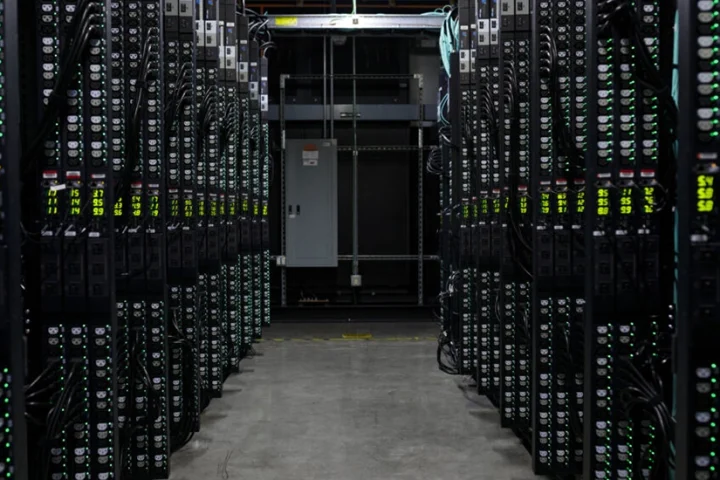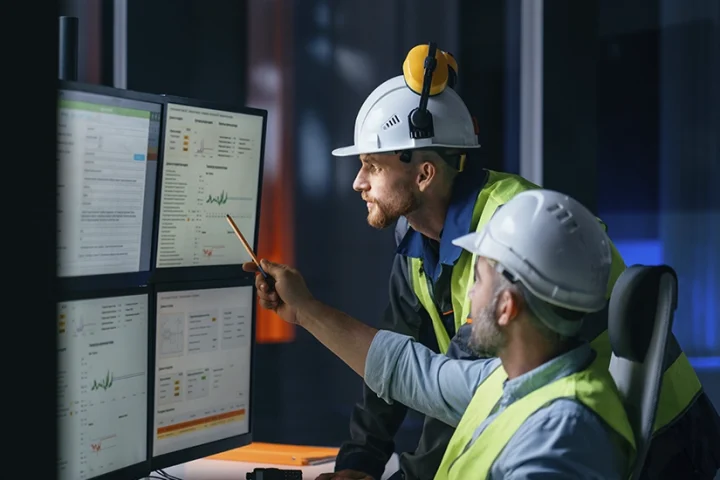The year is 2025, and we’re witnessing the technological equivalent of the “big bang” with AI at the epicenter of how we live, work and play. Just as the universe expanded rapidly after its inception, technology is exploding into new realms, redefining industries and reshaping our future. Whether you’re a tech enthusiast, business professional, innovator or student, understanding these shifts is vital to navigating this brave new world.
The rise of agentic AI architecture
“Agentic” will be the word of the year in 2025. The birth of agentic AI architecture marks a new chapter in human-AI interaction. Generative AI (GenAI) tools are evolving to enable AI agents, which are poised to revolutionize how we engage with AI systems.
In the consumer world, we’ve seen early agent approaches with virtual assistants, chatbots and navigation apps. In 2025, a new, more advanced set of agents will emerge. These agents will operate autonomously, communicate in natural language and interact with the world around them, including working in teams of other agents and humans. They will also be fine-tuned and optimized to perform assigned, specific skills, like coding, code review, infrastructure administration, business planning and cybersecurity.
AI agent systems will feature diverse cognitive, orchestration, and distribution architectures tailored to specific tasks. As complexity grows, multi-agent systems will emerge, requiring the rapid evolution of tech stacks to support agentic systems effectively.
To realize AI’s full potential and the rise of agentic architecture, enterprises must upgrade infrastructure – everything from data centers to AI PCs. This distributed infrastructure optimized for agentic AI can address security, sustainability and capacity considerations by distributing the AI workload across the entire IT infrastructure (cloud, data center, edge, and device).
Scaling enterprise AI from concept to reality
Enterprises are poised to take AI from ideation to scale. Enterprise AI is simply the application of AI technology to a company’s most impactful processes in its most important areas to improve the productivity of the organization. It requires customers to answer two important questions:
- First, what problem am I trying to solve? Developing a framework to prioritize AI efforts to the most important, impactful areas is critical.
- Secondly, how do I solve that problem? AI solutions implemented as random projects on random tools do not scale. Instead, enterprises must determine the minimum set of AI systems needed to build a reusable and scalable AI foundation. This allows them to solve the first set of critical AI problems, and then leverage that investment to solve all future AI problems.
At Dell, for instance, our priority areas are our global supply chain, our services capability, our sales engine and our R&D capacity. Any impact on these areas results in significant ROI over other areas like HR, finance and facilities.
Next, enterprises should look at specific processes in its priority areas. For example, if process analysis uncovers an opportunity not in how salespeople interact with customers, but in how much time they spend gathering content for the customer meeting, that’s a clear AI project. GenAI can be used to automate and accelerate content discovery and creation work. In this case, the ROI is clear: shift sellers’ time back to customer-facing activities and increase revenue.
To execute prioritized projects, enterprises today have multiple off-the-shelf tools from which to choose. So, in 2025 the preferred path is to buy and implement AI tools in their private infrastructure. They can also buy tools that accelerate data modernization (data meshes, for example), and with the Dell AI Factory advancements over the past year, the infrastructure is now simple to adopt and implement.
In 2025, we have clear, repeatable approaches for prioritization and more turnkey and well-defined AI platforms and AI infrastructure options. 2025 is a year when it simply becomes easier to know what to do and how to do it when adopting AI in the enterprise space.
Sovereign AI accelerates global adoption
Sovereign AI efforts are accelerating AI adoption worldwide. This concept revolves around a nation’s ability to create AI value and differentiation using its own infrastructure and data, designing an ecosystem aligned with local culture, language and intellectual property. In an era where data security is paramount, countries are opting for sovereign AI strategies and solutions, often with strong collaboration between the public and private sectors.
Instead of AI systems exclusive to governments, some countries are developing national AI resources to serve both government and local private industry, providing access to compute power and data capacity. Others are implementing a coherent national strategy where governments do not necessarily build new infrastructure but instead proactively and collaboratively co-design and encourage private industry to modernize and lead AI ecosystems.
Sovereign AI empowers nations to increase accessibility, protect critical infrastructure, drive economic growth, and enhance global competitiveness. By fostering the development of AI, it accelerates its adoption. We’re seeing growing investments directed toward infrastructure, data management, talent cultivation, and ecosystem development – and we fully expect to see this trend continue in the years ahead.
AI and the fusion of emerging technologies
AI’s true potential lies in its connections with other emerging technologies. While AI itself is transformative, its impact multiplies when combined with quantum computing, intelligent edge, Zero Trust security, 6G technologies and digital twins, to name a few. This fusion creates a dynamic environment ripe for innovation and addressing existing challenges.
For instance, quantum computing in collaboration with AI will significantly impact most industries by providing the computing capability needed to scale AI to domains where classical computing struggles – like complex material science, drug discovery and complex optimization problems.
AI and telecom are already coming together to transform how cellular networks operate and how fundamental elements of these systems, like spectrum optimization, work. Even the future of the PC is influenced by AI, as we now see the AI PC not just as a client device but part of the end-to-end AI infrastructure. With agentic architectures, we expect to shift agents out of the data center and onto the edge or to the AI PC.
Zero trust security and AI also are intersecting. Zero trust architectures are the best path to a better, more secure world and implementing zero trust in brownfield legacy IT is hard. In contrast, AI infrastructure is new and greenfield. We expect customers to adopt zero trust by default in new AI factories for optimal security. Given the criticality of AI, that is a good thing for all of us.
AI becomes an essential skill for everyone
AI will become an indispensable tool across professions and industries. Much like past technological advancements, AI is poised to transform the job market. Routine, task-oriented roles may diminish, but new opportunities will arise, such as software composers, AI content editors and prompt engineers.
Recent surveys reveal 72% of IT leaders identify AI skills as a critical gap requiring immediate attention. Organizations must invest in developing their workforce’s AI fluency. AI skill development will be focused on defining the AI/human relationship where AI completes more of the tasks, but people define what needs to be done. This allows professionals to focus on higher-level tasks, critical thinking and complex problem-solving.
With AI, it’s not just about the work that goes away, it’s about the new roles humans play in shaping, directing and leading AI work. AI-enabled businesses can use the evolution of the human-machine relationship to accomplish tasks in different ways and expand the art of the possible.
AI is tech’s grand evolution
Just as the Big Bang set the stage for the development of galaxies, stars and planets, the rapid growth of AI is creating new opportunities, industries and ways of living and working.
As we approach 2025, we predict enterprise AI adoption will accelerate dramatically in the coming year. We’re seeing better processes, better tools and a stronger ecosystem. At Dell, our initial AI projects have scaled successfully and demonstrated the potential for ROI is real. We predict the rest of the enterprise ecosystem will quickly follow suit.
For CIOs, staying informed and adaptable will be essential. Organizations must prioritize AI fluency, invest in talent development and explore innovative solutions to remain at the forefront of this tech revolution.
The future belongs to those who can harness the power of AI. Whether you’re a business executive, tech enthusiast, or innovator, the time to act is now. The impact will be profound.





















